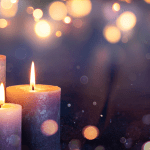Welcome readers! Please subscribe through the button on the right.
(Read this series from the beginning at Part 1 and Part 2.)

The results will make our work either easier or harder, but we’ll need to do it nonetheless. This week, the crucifixion and resurrection of Jesus point us to the themes and events of his life and how God doesn’t end the story at his death. Crosses are not the final verdict. Life overcomes even death, even death that comes through state violence.
I’m holding onto that truth this week: Life can overcome death. Love can overcome hate. Justice and compassion can overcome wrongs even when those wrongs have the backing of the propertied, powerful, and privileged.
Making sense out of death is something that people in privileged classes can wrestle with because it doesn’t make sense to them from their social location. Bad things are not supposed to happen to them! And those in unprivileged social locations generally don’t waste time trying to make sense out of wrongs or looking for some salvific, redemptive purpose in those events. They simply see them as wrong, and they may look for hope’s response to the wrongs they’ve endured. Our story this week speaks to that hope. The God of our story is with those who are crucified in our societies. This is a God of the marginalized and disenfranchised. This is a God who acts in solidarity with crucified classes and communities. And this story tells us that these crucifixions don’t have the last word.
Resurrection might look different in every situation, and some resurrections simply take time. Don’t give up.
Whatever happens over the next two years, may we keep our eyes on the possibility of a just future, a compassionate iteration of our world, one where our communities become a safe-space along with all our differences and there is room for each of us.
Whether there be crosses or not, may our hope be in life and in life giving and a way of life that overcomes death-dealing. We get to decide how we show up in our communities. May we be the kind of people whose actions don’t betray the Jesus of our most sacred stories. May we be sources of healing, inclusion, good news for the oppressed, love and life, just like the Jesus of our stories and our faith.
May we live lives that hold sacred the dignity of each person’s humanity—not just those who are like ourselves—but every person celebrating the rich diversity of our shared humanity.
This is the kind of person I want to be over the next two years. How about you?














